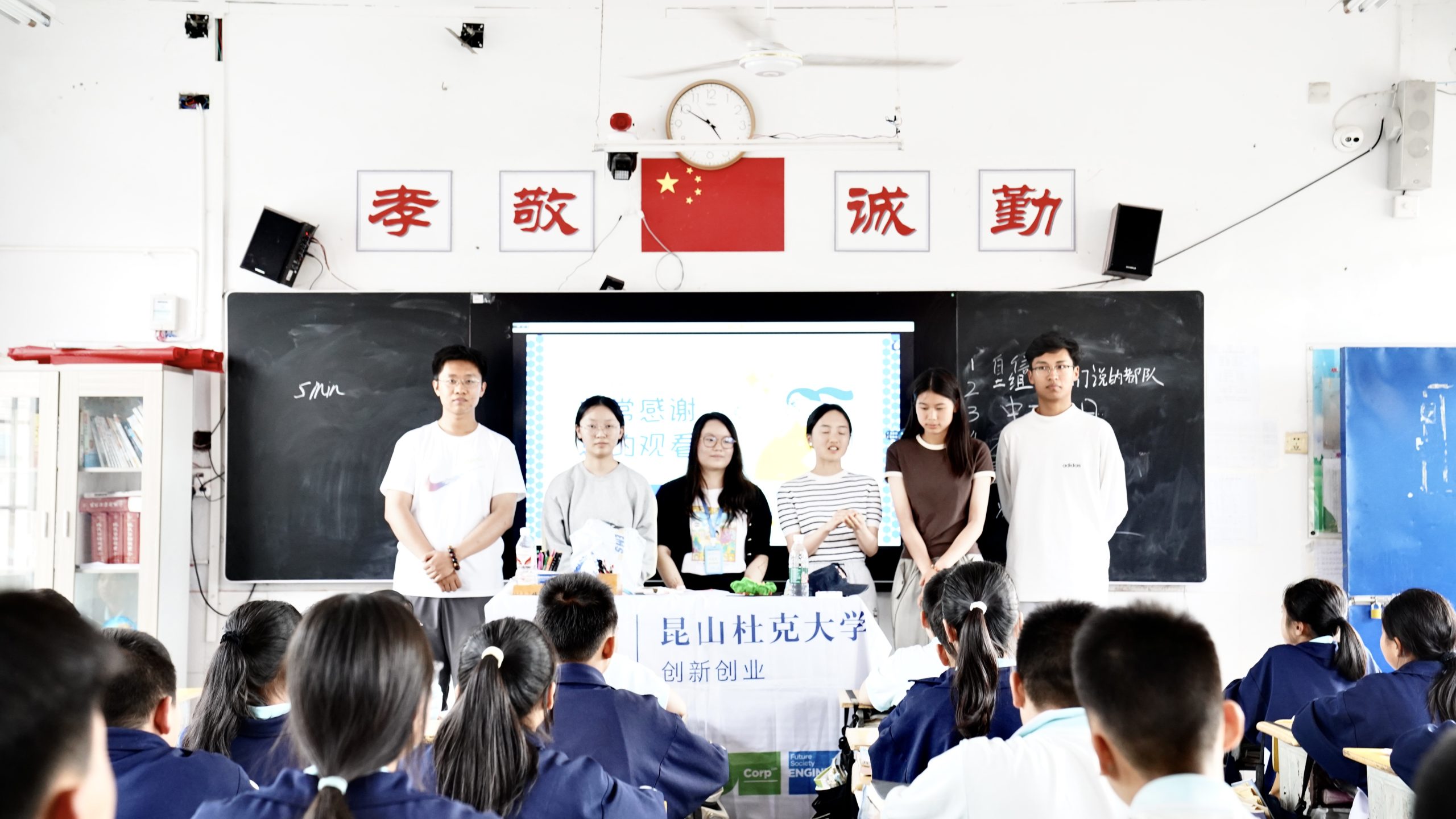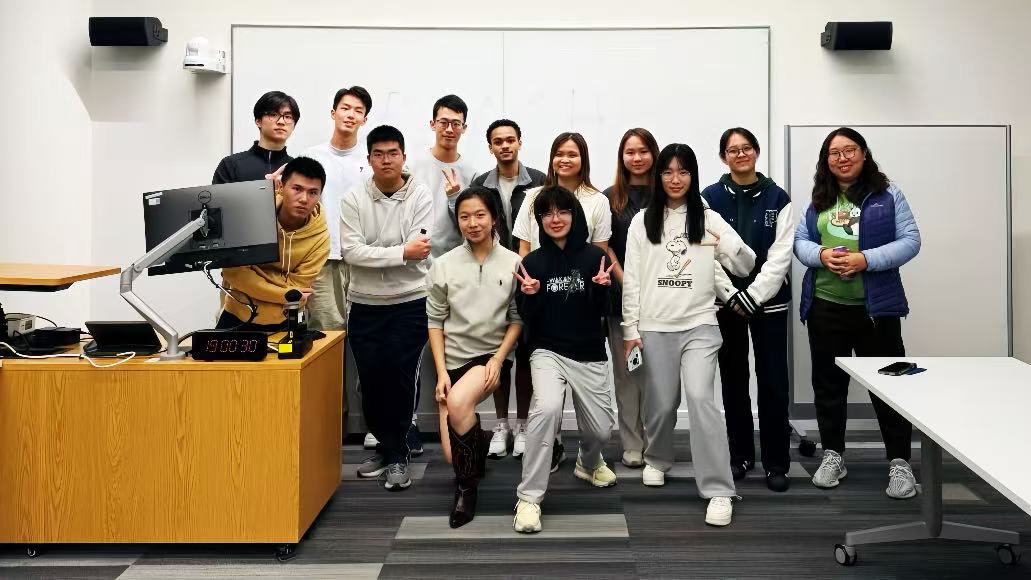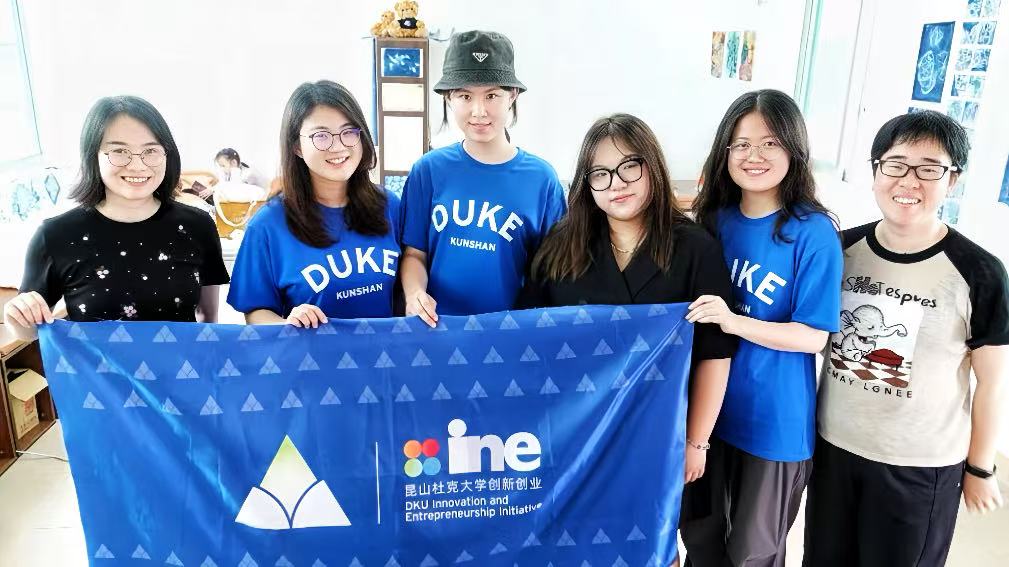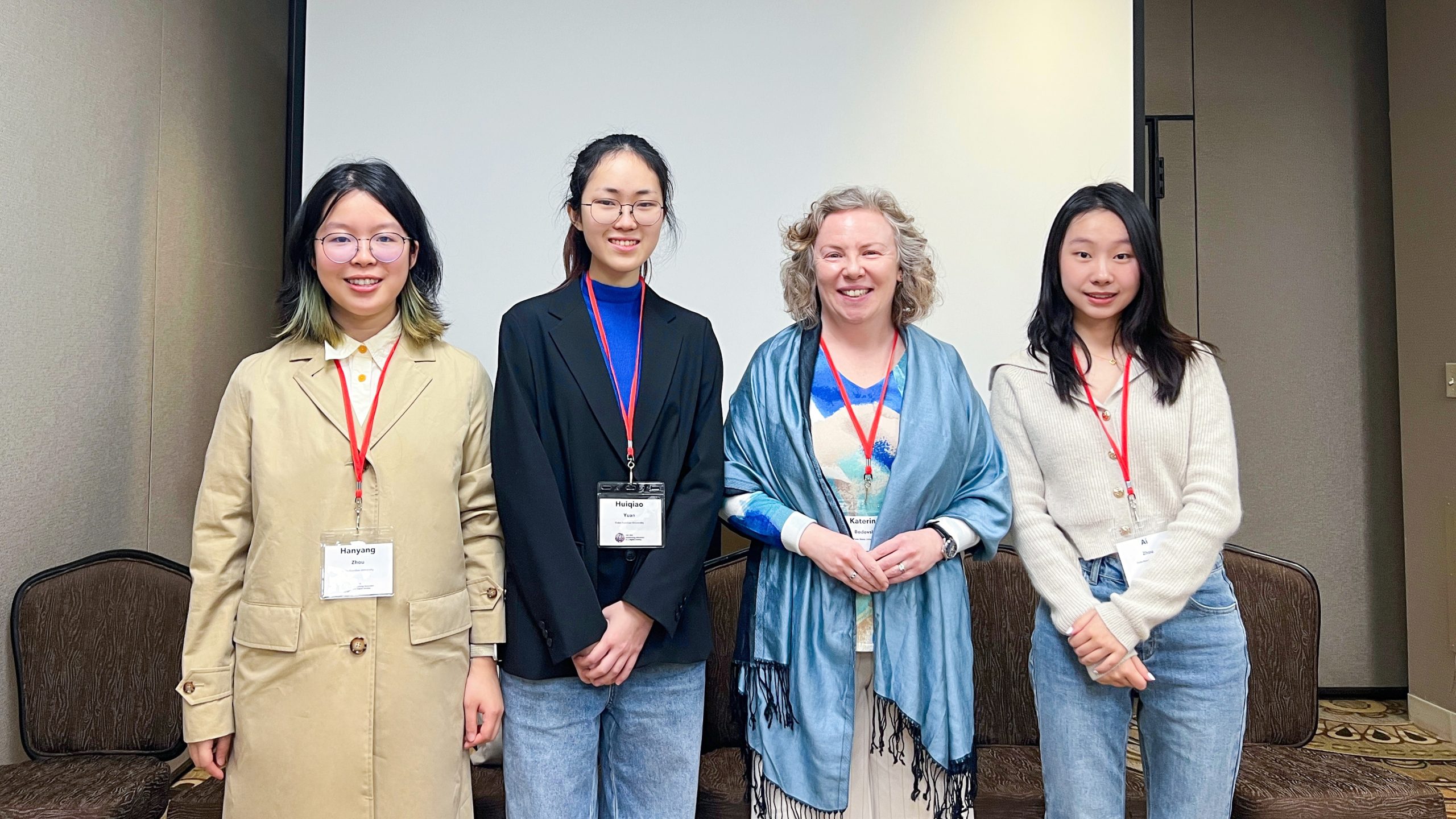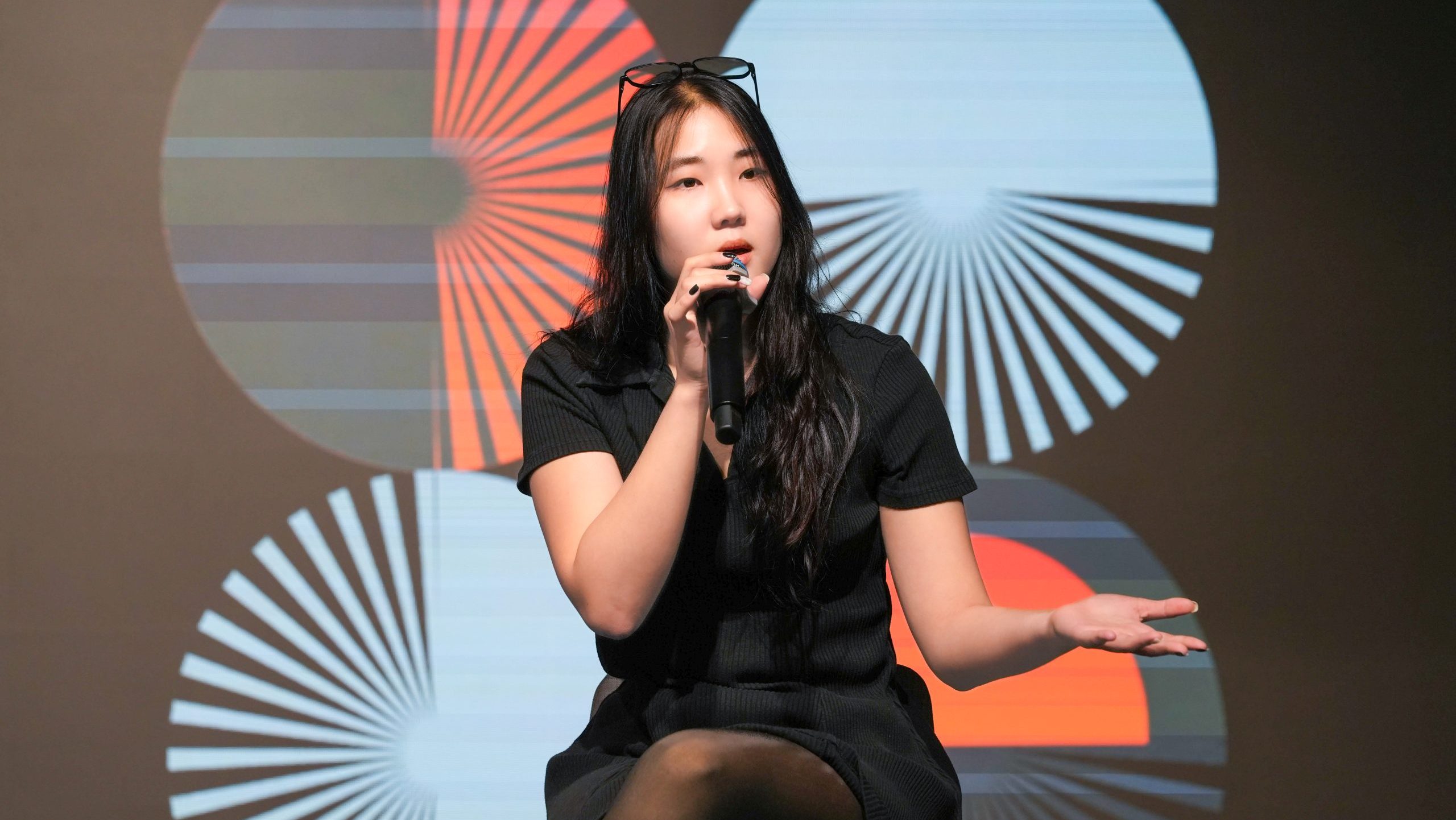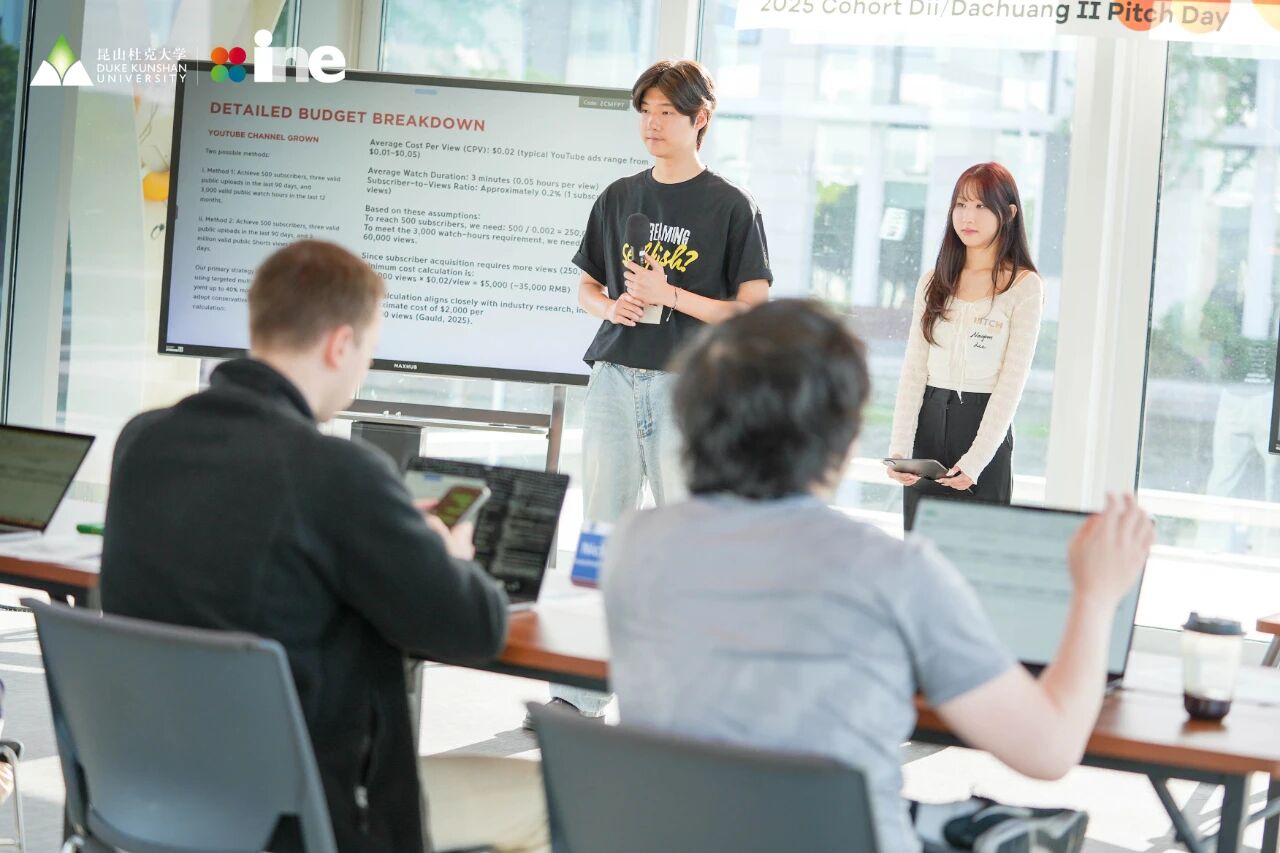In the spring of 2024, DKU University-Corporate Innovation Lab (U-Corp), in collaboration with PEER, launched a university-corporate practice project titled: “Green Education Innovation in County-Level High Schools: Exploring the Application of Photovoltaic Energy and Water Purification Technology in Education for Sustainable Development.” The project, which spanned several months, successfully concluded this fall.
After thorough preliminary research and project planning, the team carried out a week-long practical activity this summer at Yuanling No. 6 High School in Yuanling County, Huaihua City, Hunan Province. The core objectives of the project were to provide county-level high school students with an in-depth understanding of the United Nations Sustainable Development Goals (SDGs) through hands-on activities and to promote the implementation of sustainable campus reform plans at the county high school level. Additionally, the project aimed to extend the sustainable development practices of county-level schools to surrounding villages and towns, enhancing local sustainability capacity and exploring innovative models that integrate rural education with community sustainable development.
On November 1st of this year, three student participants in the project—Yixin Gu, Ruimeng Zhou, and Sean Wan—had the honor of being invited to present the project outcomes at the Duke International Forum (DIF) held at Duke Kunshan University. They also engaged in in-depth discussions with experts from various fields. The DIF Forum focuses on emerging global issues, and this year’s theme, “Reshaping Climate Policy and Green Finance for Future Sustainability,” closely aligned with the project’s goals. This provided the students with a valuable opportunity to connect classroom learning with real-world challenges, deepening their understanding of sustainable development and fostering a stronger sense of responsibility.
The University-Corporate Innovation Lab projects at Duke Kunshan University uphold the principles of Innovation, Academic Excellence, and Impact as core objectives. By fostering collaboration between universities and enterprises, the lab provides a platform for students to grow and gain practical experience. We aspire to not only support students’ personal development but also contribute positively and profoundly to societal progress, achieving an organic integration of educational empowerment and social responsibility.
Next, let’s listen to the three DKU students as they share their experiences and insights gained from their journey with U-Corp.
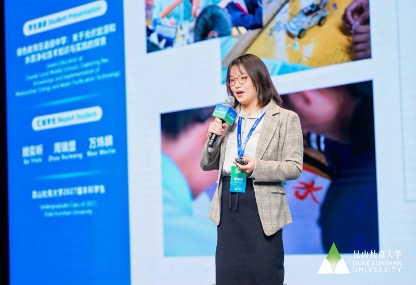
Participating in this project has prompted our entire team to critically reflect on the implementation of green education in county-level middle schools. What exactly constitutes green education? What kind of green education do we aim to deliver? What is the significance of green education? These are questions we have been actively contemplating.
In our curriculum design and teaching process, we integrated concepts from high school physics and chemistry to help students understand principles such as photovoltaic power generation and water quality testing. At the same time, we connected these concepts with the United Nations Sustainable Development Goals, as well as the growth and development of the students and their communities. This approach allowed us to create a comprehensive and innovative curriculum framework that not only enhances students’ knowledge but also actively engages them through classroom activities, experiments, and team project presentations. This process helped students understand the interconnection between environmental protection and everyday life while developing their skills and competencies. Rather than immediately guiding students to take direct action on environmental protection, our primary goal was to raise awareness about global warming, environmental crises, and ecological conservation. We hope this shift in consciousness will inspire concrete actions and foster a sense of enthusiasm and responsibility among them.
Beyond the classroom, we also explored additional topics, such as local schools’ gender education models, community policies on green energy, new dynamics in teacher-student interactions, and collaboration with faculty members. This project not only represents an innovation in green education but also serves as an entry point to explore a wide range of related issues across different fields. With these ongoing topics and inquiries in mind, I am confident that students in the county will, like us, continue to progress along the path of sustainable development.
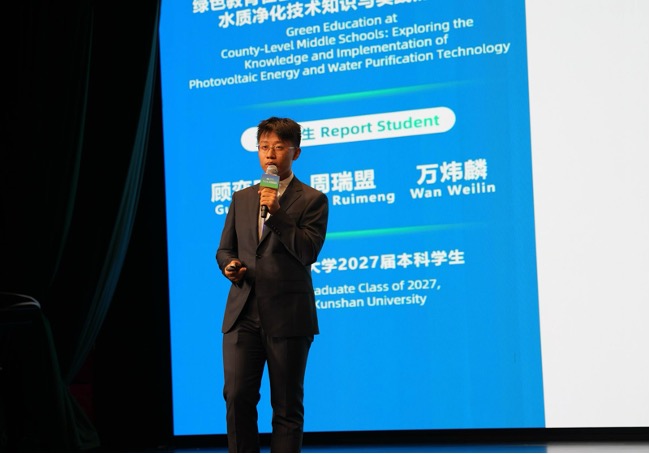
Participating in this project made me deeply realize the importance of combining theory with practice. In the preparation phase, we used literature reviews and online interviews to define objectives and draft course proposals. This process showed me that translating the ambitious Sustainable Development Goals into curriculum content suitable for secondary school students requires thorough research and careful design.
During the field phase, our team members went to Yuanling No. 6 Middle School to explore photovoltaic energy and water purification technology with the students. During this time, I not only witnessed the students’ eagerness for new knowledge and enthusiasm for hands-on activities but also experienced the role of an educator in sparking students’ interest and guiding them to explore the world. Through interactive teaching and experiments, students were able to directly experience and understand these green technologies, significantly increasing their engagement and enthusiasm for learning. This not only filled a gap in the school’s curriculum on sustainability but also ignited students’ interest and sense of responsibility toward environmental protection and green energy.
The experience was not just about transferring knowledge, but also about creatively solving problems in a resource-limited environment. It was not only an attempt at educational innovation but also an important exercise in personal growth and teamwork for our team members. I feel privileged to have participated in such a meaningful and challenging project, which not only enhanced my professional skills but also deepened my understanding of the power and impact of educational practice.
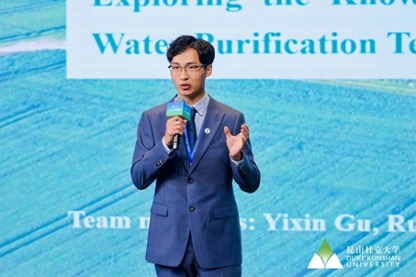
My personal reflection on this project—whether during the pre-trip interview, the offline implementation, or even now—remains unchanged: this journey has far exceeded my expectations.
As I rehearsed, I found myself transported back to that week in early June when we implemented the project in Yuanling County, Hunan Province. The essence of the entire project is captured in what I wrote on the slides: “Sustainable development is often incomplete without proper education to raise people’s awareness.”
In 2021, I conducted an experiment on the biological degradation of pharmaceutical wastewater. The experiment was a success, but when I shared my findings with others, I realized that very few people seemed to care about water pollution. This realization stuck with me. Therefore, during my interview with DKU InE U-Corp earlier this spring, I said, “Everyone is talking about sustainability right now, but I believe that only through proper sustainability education can we truly achieve the goal of sustainable development.” From that idea came a three-month-long project involving six of us, culminating in our week-long on-the-ground implementation in Yuanling County.
I still vividly remember one evening in Yuanling when a student shared her story. She had gone home and explained our lectures to her parents, who, inspired, bought a garbage bin and placed it outside their house. Yet, to her frustration, their neighbors continued to litter, even though the bin was just one step away. She felt disheartened, questioning the purpose of her efforts. The next morning, during our debrief, I admitted my own doubts: “At first, I thought we could bring about some real changes, but now it feels like we can’t change anything. It feels like we spent a week giving students a glimmer of hope, only to leave just as that hope began to take root.”
And yet, as I see the messages occasionally popping up in our active class group chat and hear students share their recent environmentally friendly actions, I can’t help but believe that the impact of our three months of preparation and one intense week of practice is far from over. We have planted a seed in their hearts. Though it may take time—perhaps a long time—to truly take root and sprout, that seed is there, quietly growing, waiting for its moment to flourish.

